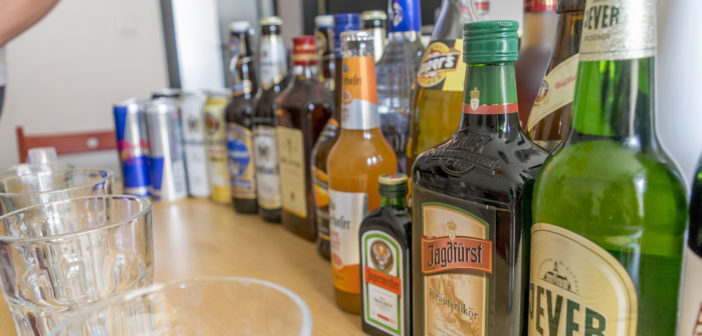When the clock strikes 10:30 p.m. on a weeknight, Lehigh nightlife is in full swing.
East Fifth Street and Hillside Avenue, among others, are swarming with students running from one party to the next.
However, members of athletic teams usually find themselves at home relaxing or in the library studying.
While in season, different teams have social aspects of their lives restricted by rules they have set in place for themselves. Some teams abide by a 48- or 72-hour rule and others go through periods where they are completely dry.
“Whenever people ask me about it I’m always like, ‘yeah it sucks,’ and maybe it’s only a little bit of a physical thing, but it keeps forcing me to ask myself, ‘Why am I doing this?’” senior swimmer Justin White said. “When someone offers me a drink and I say no, I’m always thinking about why.”
The swim team goes through different stages of social policies. When they first get back to school, there aren’t any rules they need to abide by. As the year goes on and they start practicing, the team limits going out to Wednesdays and Saturdays. When meet season arrives, which lasts from late September to January, the swimmers are only allowed out on Saturday nights.
Each year the team chooses a meet in January that will mark the start of its dry period. It remains completely dry for one month leading up to championships.
“The rules have been kind of a running tradition,” White said. “The coaches know about it and agree with it. It’s kind of a legacy rule that’s been passed down and every year we come together and re-up it and make sure everyone is OK with it.”
There are exceptions to every rule.
There are certain times where the team may not have a practice or a meet or when there are breaks in school like Pacing Break, in which case the times that they are allowed to go out will differ.
But when the rules are set, they are not to be broken.
“We are about as strict as it gets,” White said. “As soon as alcohol passes your lips when it’s not supposed to that’s breaking the rules, regardless of if it’s a beer with your family or a shot with your friends.”
When someone does slip up, the team faces a punishment as a whole. White said the person who broke the rule needs to see the impact that their actions have on the whole team and how they might be hurting the team.
On the nights they do go out, it’s important for athletes to stay in control because it is easy to get carried away by the fact that they haven’t been out all week.
“We try to fit a week of drinking into a night,” White said.
He said people need some sort of release, and in college a lot of kids turn to partying and alcohol. He added that after being restricted like they are, there is a fine line between getting too drunk and something that can have a more negative effect in the long run.
It’s not easy going to a school that has a made a name for itself in the partying community, he said.
“You do get a little bit of cabin fever almost when in dry season,” White said. “You are literally just like a robot going from practice to class and then going home and getting some sleep.”
Not all teams face dry seasons, but most have drinking policies set in place.
The men’s basketball team follows a 72-hour rule, which means they are not allowed to drink 72 hours before a game. The team doesn’t have any set rules other than those from their coaches, and they do their best to handle things within the team and only involve coaches when absolutely necessary.
“The 72-hour rule is set in place more out of respect for your teammates rather than yourself,” said Tim Kempton, a senior on the men’s basketball team. “Some players can drink the night before and play the best game of their life, and for others it’ll mess with them.”
Even though their partying is restricted, players think the rules about drinking are beneficial to their teams and, minimizing alcohol intake pays off in the long run.
“I think it’s a good policy,” White said. “It keeps people centered.”






Comment policy
Comments posted to The Brown and White website are reviewed by a moderator before being approved. Incendiary speech or harassing language, including comments targeted at individuals, may be deemed unacceptable and not published. Spam and other soliciting will also be declined.
The Brown and White also reserves the right to not publish entirely anonymous comments.